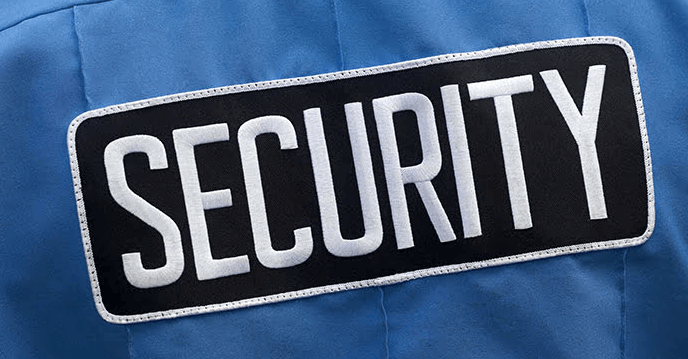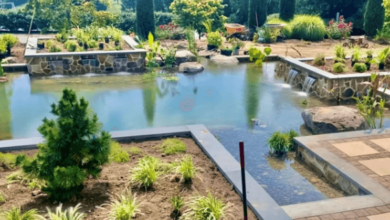
Top Locksmith Tips for Home Security
Home security is a top priority for homeowners, and ensuring that your property is safe from intruders requires more than just locking the doors. With the expertise of a professional locksmith, you can implement effective security measures that deter burglars and protect your home. This article provides essential locksmith tips for improving home security, covering everything from choosing the right locks to securing windows and doors.
Understanding the Importance of Quality Locks
One of the most basic yet crucial elements of home security is the lock. Not all locks are created equal, and investing in high-quality locks is one of the most effective ways to secure your home. Quality locks provide a strong first line of defense against intruders and can significantly reduce the likelihood of a break-in.
Choosing the Right Type of Lock
When it comes to choosing locks, consider the specific needs of each entry point. For front and back doors, a deadbolt lock is the most secure option. Deadbolts provide extra strength compared to standard locks because they extend deeper into the door frame, making them more resistant to forced entry. Look for locks that are rated Grade 1 or Grade 2 by the American National Standards Institute (ANSI), as these are the most secure.
For interior doors, such as bedroom or bathroom doors, a standard lock with a knob or lever is usually sufficient. However, if you want added security, consider installing a deadbolt on these doors as well.
Installing Smart Locks
Smart locks are becoming increasingly popular due to their convenience and enhanced security features. These locks can be controlled remotely via a smartphone app, allowing you to lock and unlock your doors from anywhere. Some smart locks also offer features like keyless entry, temporary access codes for guests, and integration with other smart home devices.
When choosing a smart lock, look for models that offer strong encryption and have features like tamper alerts, which notify you if someone tries to break in.
Reinforcing Doors and Entry Points
While locks are essential, they are only as strong as the doors and frames they are attached to. Reinforcing doors and entry points can make a significant difference in your home’s overall security.
Strengthening Door Frames
Even the strongest lock can be compromised if the door frame is weak. To reinforce your door frame, consider installing a door jamb reinforcement kit. These kits typically include steel plates and longer screws that help distribute the force of a kick-in attempt across the door frame, making it much harder to break through.
Upgrading Door Hardware
In addition to reinforcing the door frame, upgrading the door hardware is another effective way to improve security. Consider installing a heavy-duty strike plate, which is the metal plate that the lock bolt slides into. A high-quality strike plate with long screws will provide extra reinforcement against forced entry.
Adding a door viewer (peephole) or a security camera to your front door can also enhance security by allowing you to see who is outside before opening the door.
Securing Sliding Doors
Sliding doors are a common weak point in home security because they can be easily forced off their tracks or lifted out of place. To secure sliding doors, install a security bar or a door rod in the track to prevent the door from being opened from the outside. Additionally, consider installing a sliding door lock that prevents the door from being lifted off its track.
Enhancing Window Security
Windows are another common entry point for burglars, making window security a critical aspect of home protection. While it’s important to ensure that windows are always locked when not in use, there are additional steps you can take to further secure them.
Installing Window Locks
Most windows come with standard locks, but these may not be sufficient to keep intruders out. Consider installing additional locks or upgrading to more secure options. For example, pin locks can be added to double-hung windows to prevent them from being opened from the outside.
Using Security Film
Applying security film to windows can make them more resistant to breakage. Security film is a clear, adhesive layer that holds glass together if it is shattered, making it more difficult for an intruder to gain entry. This is especially useful for ground-level windows or windows that are hidden from view, where break-ins are more likely to occur.
Installing Window Bars
For windows that are particularly vulnerable, such as those in basements or on the first floor, window bars can provide an additional layer of security. While some homeowners may be concerned about the aesthetic impact, there are decorative window bars available that can enhance the appearance of your home while providing strong protection.
Implementing Outdoor Security Measures
Outdoor security is just as important as securing the inside of your home. By implementing outdoor security measures, you can deter potential intruders before they even attempt to enter your property.
Installing Security Lighting
Motion-activated security lighting is an effective way to deter intruders. These lights automatically turn on when they detect movement, illuminating the area and making it difficult for someone to approach your home unnoticed. Place security lights near all entry points, such as doors, windows, and the garage, as well as along walkways and driveways.
Consider installing smart lights that can be controlled remotely or set to turn on and off at specific times. This can give the appearance that someone is home even when you are away, further deterring potential burglars.
Using Security Cameras
Security cameras are a powerful tool for both deterring intruders and capturing evidence in the event of a break-in. Install cameras at key locations around your home, such as near doors, windows, and the garage. Modern security cameras offer features like night vision, motion detection, and remote viewing via a smartphone app.
For added security, consider using cameras that are integrated with a home security system. This allows you to receive alerts if the cameras detect unusual activity and even view live footage from your mobile device.
Securing the Perimeter
Securing the perimeter of your property is another important step in home security. Fencing, gates, and landscaping can all play a role in deterring intruders. For example, a tall, sturdy fence can make it more difficult for someone to gain access to your property, while thorny bushes or plants placed near windows can make it less appealing for an intruder to attempt a break-in.
Maintaining Your Security System
Once you have implemented various security measures, it’s important to regularly maintain and update your security system to ensure it remains effective.
Regularly Inspecting Locks and Hardware
Over time, locks and door hardware can wear out or become less effective. Regularly inspect all locks, door frames, and window locks to ensure they are in good condition. If you notice any signs of wear or damage, such as rust or loose screws, replace the hardware immediately.
Updating Security Codes
If you have a smart lock or a security system that uses access codes, it’s a good idea to update these codes regularly. This is especially important if you have given out codes to contractors, cleaners, or other service providers who no longer need access to your home.
Testing Security Systems
If you have a monitored security system, regularly test it to ensure that it is functioning properly. This includes testing alarms, sensors, and cameras to make sure they are working correctly. Many security companies offer regular maintenance checks as part of their service, so take advantage of this to keep your system in top shape.
Seeking Professional Locksmith Advice
While there are many steps you can take on your own to improve home security, consulting with a professional locksmith can provide you with expert advice and additional security options that you may not have considered.
Conducting a Security Assessment
A professional locksmith can conduct a thorough security assessment of your home, identifying potential vulnerabilities and recommending improvements. This may include upgrading locks, reinforcing doors, installing additional security measures, or even rekeying locks if you have recently moved into a new home.
Emergency Lockout Services
In addition to security advice, professional locksmiths offer emergency lockout services. If you ever find yourself locked out of your home, a locksmith can help you regain access quickly without causing damage to your property.
Choosing the Right Locksmith
When selecting a locksmith, be sure to choose a reputable and licensed professional. Look for locksmiths who are members of professional organizations, such as the Associated Locksmiths of America (ALOA), and check online reviews to ensure they have a good reputation. A trusted locksmith will provide transparent pricing, high-quality work, and reliable service.
Conclusion
Home security is an ongoing process that requires a combination of high-quality locks, reinforced doors and windows, outdoor security measures, and regular maintenance. By following these top locksmith tips, you can significantly enhance the security of your home and protect your family and belongings from potential threats. Remember, when in doubt, consulting with a professional locksmith can provide you with the expertise and peace of mind you need to ensure your home is as secure as possible.




